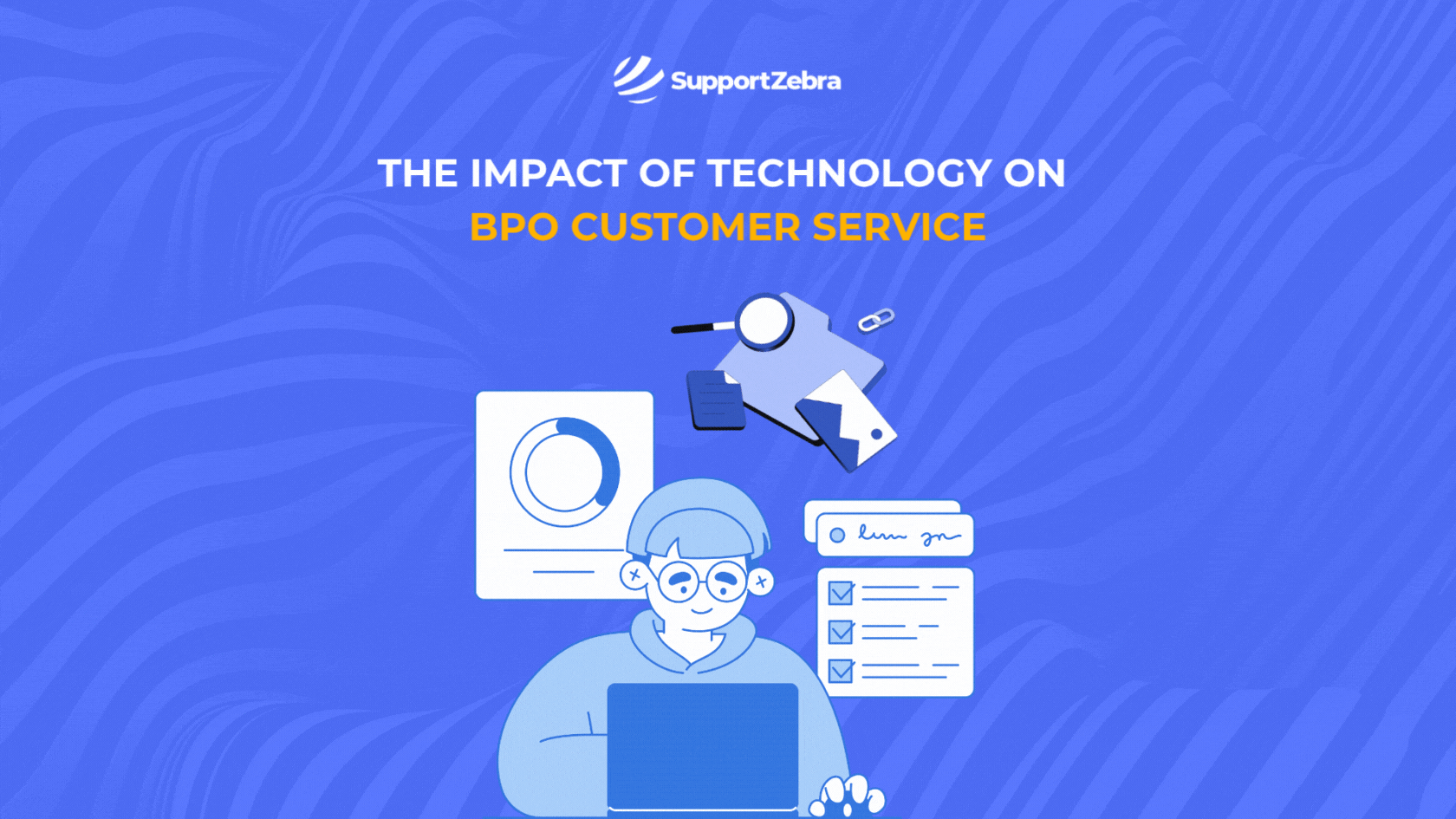The Surprising Ways Technology is Enhancing BPO Customer Service
What does it take to turn a BPO customer service agent into a top performer? BPO is vital for enhancing efficiency and allowing companies to focus on their core strengths, with customer service being key to client experience.
Agents require comprehensive training to meet rising service expectations. This blog will explore essential training programs that equip BPO agents with the skills needed for exceptional service, leading to increased customer satisfaction and loyalty.
Automation and AI in BPO Customer Service
BPO customer service is changing due to automation and AI. Automation helps with repetitive tasks, while AI improves customer interactions using algorithms and machine learning. Some automated tools are chatbots, virtual assistants, robotic process automation (RPA), speech analytics, agent assist, and predictive analytics.
The advantages include better efficiency, cost savings, improved customer satisfaction, greater flexibility, and advanced data analysis. By adopting these technologies, BPOs can provide quicker, more efficient, and personalized support, lowering costs and improving the customer experience. This allows BPOs to stay ahead in a fast-changing market.
Omnichannel Solutions in BPO Customer Service
Omnichannel customer support solutions are changing how BPOs interact with customers by combining different communication channels into one system. This technology helps BPOs collect customer information, offer personalized support, and handle inquiries efficiently.
The advantages include better operational efficiency, higher customer satisfaction, improved data analysis, and greater flexibility. By adopting omnichannel solutions, BPOs can enhance the customer experience, streamline processes, and promote growth in a competitive market.
Data Analytics and Decision-Making
Data analytics plays a vital role in BPO customer service by offering insights into how customers behave, identifying operational inefficiencies, and measuring agent performance. By examining customer interaction data, BPOs can tailor the customer experience, solve operational issues, and give quick feedback. Predictive analytics helps BPOs foresee customer problems and take proactive measures.
Additionally, data analytics supports better decision-making, boosts chatbot efficiency, forecasts workforce needs, and identifies effective communication strategies. Data analytics allows BPOs to make smart and informed choices, resulting in better customer service, higher operational efficiency, and improved business outcomes.
Cloud Technology and Its Impact
Cloud technology has revolutionized customer service in the BPO industry by enabling remote access, scalability, and efficiency. Agents can now work from anywhere, ensuring quick responses during emergencies like the COVID-19 pandemic. It also enhances data management for faster storage, processing, and analysis.
Cloud platforms offer essential tools like call routing, IVR, and automated workflows, improving BPO operations. With benefits such as cost reduction, disaster recovery, and enhanced security, cloud solutions help BPOs improve services, streamline processes, and stay competitive in a rapidly changing market.
Virtual Agents vs. Human Agents
The rise of AI-powered virtual assistants has significantly impacted the BPO customer service sector, offering benefits like 24/7 availability, scalability, consistency, cost-effectiveness, and emotional intelligence. While they can handle complex problems, they still require human support and are limited by human work hours.
As a result, BPOs are adopting a mixed model where virtual agents manage simple tasks and human agents address more complex interactions. This approach will enhance support for human agents with real-time data and automation, leading to improved customer satisfaction and operational efficiency.
Impact of IoT on BPO Customer Service
The Internet of Things (IoT) is changing business-customer interactions by using smart home products and wearables to gather data, enhance operations, and provide timely support. This leads to increased customer satisfaction, productivity, and improved data analysis.
IoT enables automated processes and predictive maintenance, resulting in faster responses, fewer disruptions, and better resource utilization. The insights gained from IoT data help anticipate customer needs and drive service improvements while reducing operational costs. Adopting IoT can revolutionize BPO customer service, offering personalized and efficient support to enhance the customer experience.
Blockchain and Transparency
BPO companies are leveraging blockchain technology to improve customer interactions and build trust. Its secure, transparent, and decentralized nature minimizes manipulation risks and ensures equal access for all participants. Blockchain promotes transparency by allowing everyone to view the same information and validates data through consensus mechanisms.
BPOs can implement blockchain in supply chain management, healthcare, financial services, identity management, and loyalty programs, enhancing transparency, trust, and efficiency. This integration ultimately leads to better customer service and stronger client relationships.
Final Thoughts on Embracing the Tech-Driven Future of BPO Customer Service

Technology has drastically reshaped BPO customer service from AI to IoT and data analytics. To stay competitive, BPOs must embrace these advancements, address security concerns, and invest in skilled talent to improve efficiency and client relationships.
At SupportZebra, we provide tailored tech solutions to elevate BPO performance. From AI-driven chatbots to cloud-based tools, we help manage more inquiries while maintaining top-notch service. Our platform also offers advanced data management to drive smarter decisions, with a strong focus on security and compliance.
Partner with SupportZebra to transform your BPO strategies and deliver superior customer service. Contact us today!

